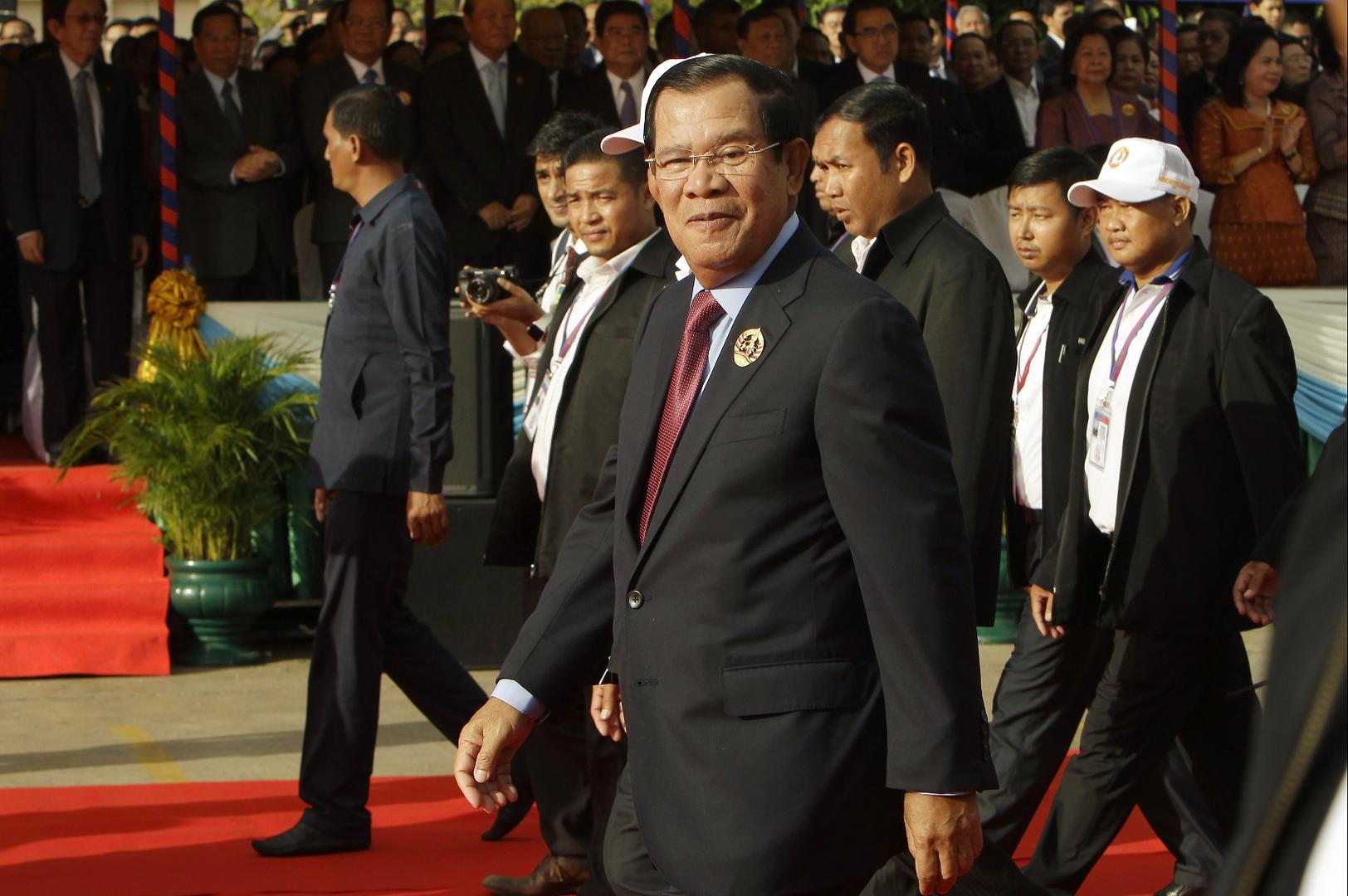Cambodia: Access to Information Bill Falls Short

Expand Cambodian Prime Minister Hun Sen, center, arrives for a ceremony of the 68th anniversary of the founding of his Cambodian People's Party in Phnom Penh, Cambodia on Friday, June 28, 2019. © 2019 AP Photo/Heng Sinith (Phnom Penh) – The Cambodian authorities should amend the Draft Law on Access to Information to reflect international standards relating to the right to information, ARTICLE 19 and Human Rights Watch said today. Cambodian Prime Minister Hun Sen, center, arrives for a ceremony of the 68th anniversary of the founding of his Cambodian People's Party in Phnom Penh, Cambodia on Friday, June 28, 2019. “The government’s commitment to adopting access to information legislation is a step in the right direction. A strong law could open up channels for combatting corruption, promoting accountability, and enabling public participation in official decision-making processes,” said Matthew Bugher, ARTICLE 19’s Head of Asia Programme. “However, the government has yet to incorporate key recommendations, despite a lengthy consultation process.” While the Cambodian government’s efforts to facilitate access to information held by public authorities are positive, the Draft Law has numerous shortcomings, including a narrow definition of the type of information and institutions to which it applies, and failure to establish effective oversight mechanisms.
These shortcomings contravene international standards on the right to information and Cambodia’s obligations under international human rights law as well as threaten to undermine the law’s potential. ARTICLE 19’s and Human Rights Watch’s assessment of the Draft Law contrasts with the recent statement by the Minister of Information that the Draft Law aligned with international standards and Cambodia’s constitution.
The Draft Law has many ambiguous provisions and unclear definitions and omits key components of exemplary access to information legislation. Key concerns about the Draft Law are: On October 30, 2019, ARTICLE 19 sent its legal analysis of the most recent publicly available version of the Draft Law, dated August 20, 2019, to the Ministry of Information and offered further assistance in improving the bill. In the analysis, ARTICLE 19 provided concrete recommendations on how specific sections of the Draft Law could be modified to ensure compatibility with international standards. ARTICLE 19 has not received a response.
The right to information is protected in several treaties to which Cambodia is a party, including the International Covenant on Civil and Political Rights (ICCPR).
The right to information guarantees individuals, groups, and companies the right to obtain information from public bodies while also obliging those public bodies to facilitate access to information through responses to requests and proactive publication. In 2015, the Ministry of Information, in cooperation with UNESCO, formed a Technical Working Group on Access to Information to develop comprehensive access to information legislation. Over the following four years, the Working Group held numerous consultations with key stakeholders, including representatives of Cambodian civil society. While many groups lauded the government’s willingness to engage the public, some expressed concerns that key recommendations had not been incorporated into successive drafts of the proposed legislation. In the lead-up to the 2018 general elections, the Cambodian government significantly curtailed the right to freedom of expression in Cambodia.
The authorities arrested, prosecuted, and harassed activists, journalists, and human rights defenders in an attempt to silence independent and critical voices. Arbitrary judicial and administrative proceedings led to the dissolution of the Cambodia National Rescue Party (CNRP), civil society organizations, and independent media outlets.
The government adopted a series of repressive laws and amendments to existing laws that have undermined the right to freedom of expression. More than one year after the elections, the government’s crackdown on dissent has not stopped. Government critics are subjected to persistent harassment by authorities, leading many to flee the country out of fear of being arbitrarily arrested. “The access to information bill has taken more than four years to draft and will soon be handed to what is now a single party-controlled National Assembly,” said Phil Robertson, deputy Asia director at Human Rights Watch. “UNESCO, foreign governments, and donors should insist that Prime Minister Hun Sen’s government revises the draft law to bring it into line with international s.
Read the full article at the original website
References:
- https://www.hrw.org/asia/cambodia
- https://www.article19.org/author/matthewarticle19-org/
- https://www.khmertimeskh.com/50649227/information-access-law-in-line-with-standards-minister/
- https://www.article19.org/resources/cambodia-analysis-of-the-draft-law-on-access-to-information/
- https://www.hrw.org/about/people/phil-robertson
